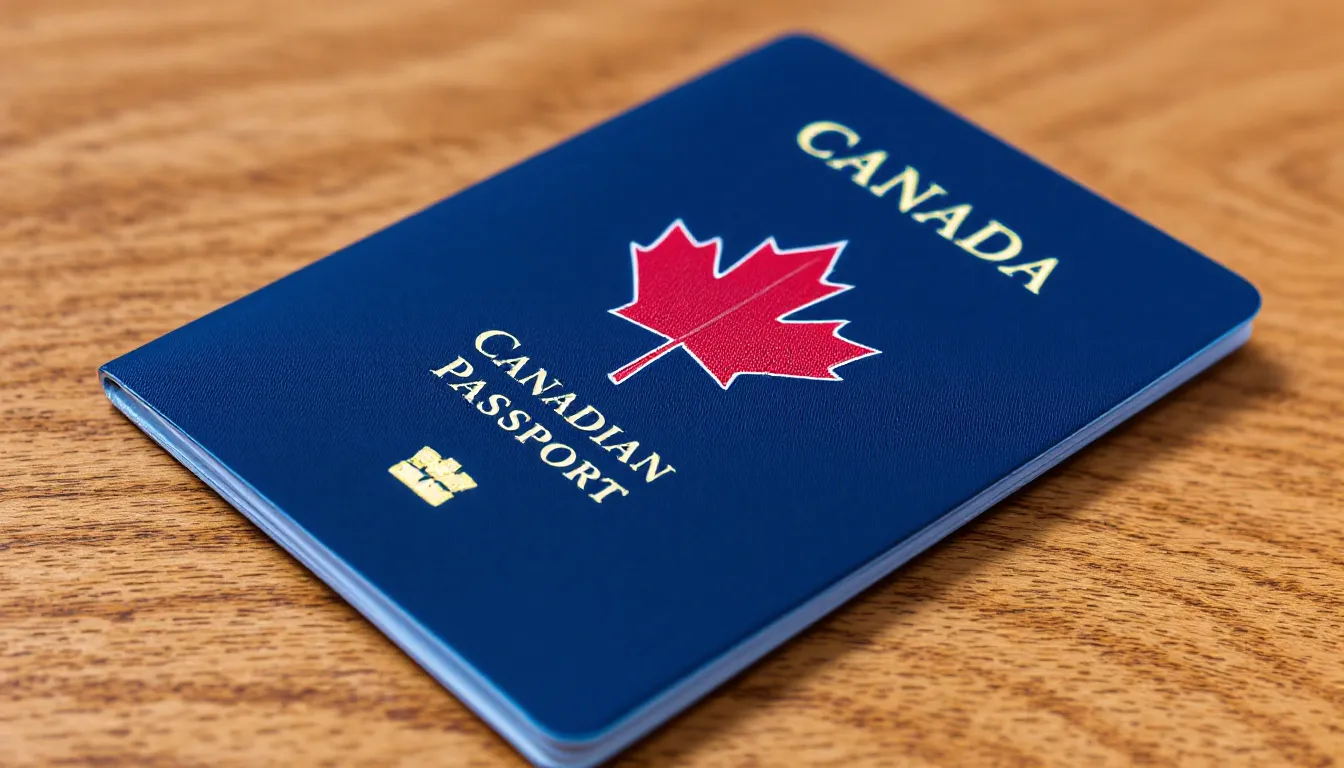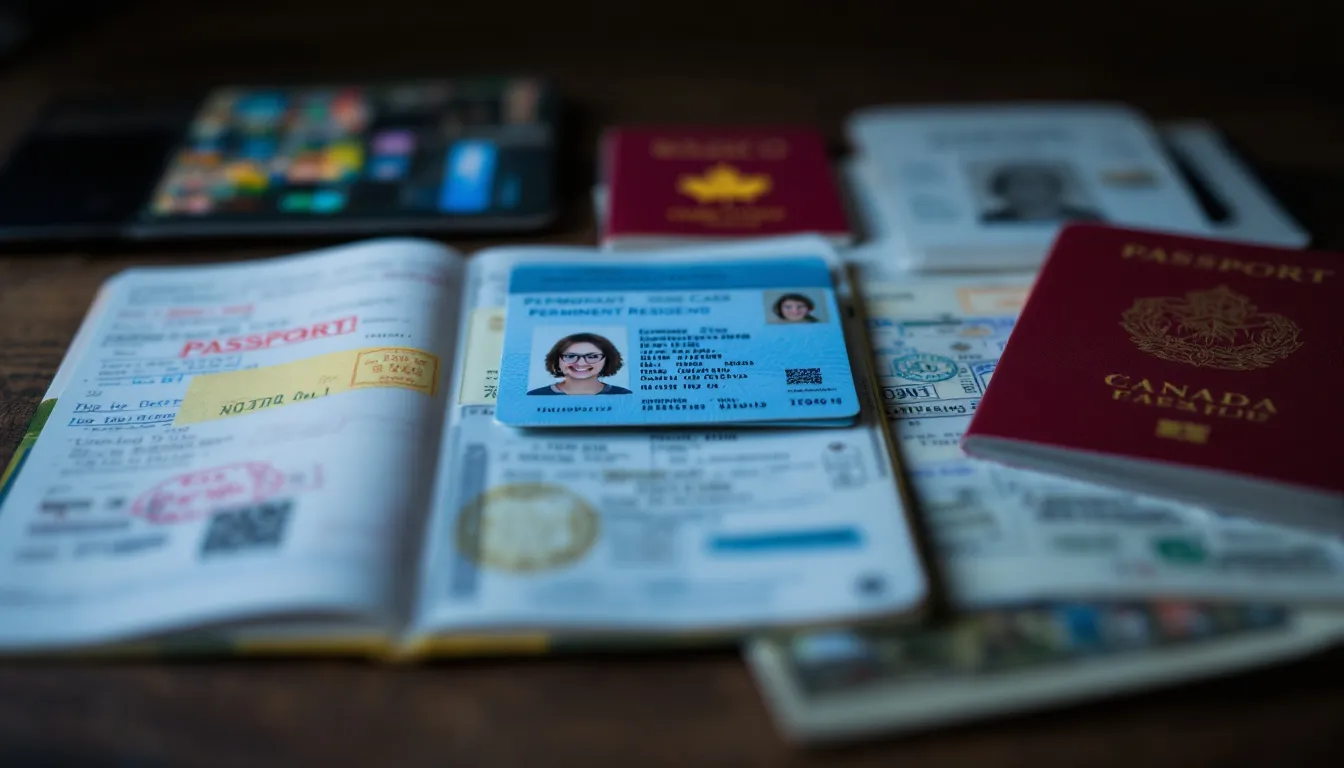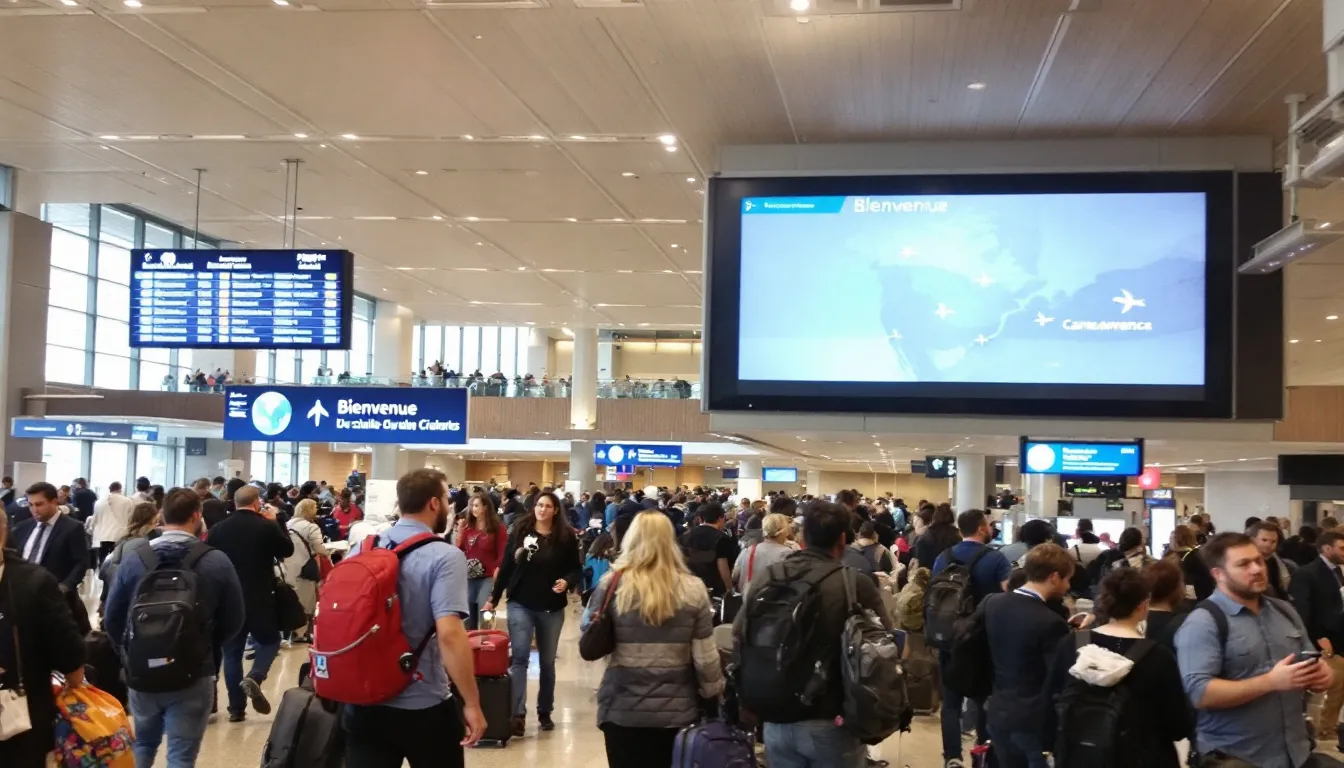
What Documents Do I Need to Travel from Canada to USA: Essential Guide
Share
Wondering what documents do I need to travel from Canada to USA? This comprehensive guide will help you out. Whether you’re a Canadian citizen, a permanent resident, or traveling with children, having the correct documentation is essential. We will cover everything from passports and visas to special cases, ensuring a smooth trip for everyone.
Table of Contents
- Valid Passport for Canadian Citizens
- Travel Documents for Permanent Residents
- Visa Requirements
- Electronic Travel Authorization (eTA)
- Identification for Children and Minors
- Additional Documentation for Special Cases
- Dual Citizens
- Lawful Permanent Residents of the U.S.
- Workers and Students
- Preclearance at Canadian Airports
- Traveling with Prescription Medication
- Traveling with Pets
- Emergency Assistance and Contact Information
Key Takeaways
- Canadian citizens must possess a valid passport for travel to the U.S., while permanent residents need a passport from their home country along with their permanent resident card.
- Travelers may require a visa based on their eligibility for the Visa Waiver Program; obtaining an ESTA is mandatory for VWP participants before boarding flights to the U.S.
- Proper identification is essential for children and minors traveling to the U.S., including notarized consent letters when traveling without parents or guardians.
Valid Passport for Canadian Citizens

A valid Canadian passport is the cornerstone of your travel documents when entering the United States. As a Canadian citizen, you must possess a valid passport to cross the U.S. border. It’s essential to ensure that your passport is current for the entire duration of your stay in the United States. This prevents complications or potential denials at the border.
Dual citizens should carry their valid Canadian passport when returning to Canada, even if they hold another passport. This ensures compliance with Canadian law and facilitates smooth re-entry into the country.
Double-check the expiration date and renew your passport well ahead of your travel dates to avoid last-minute issues.
Travel Documents for Permanent Residents

Canadian permanent residents have specific requirements when traveling to the U.S. You must present a valid passport from your home country and your permanent resident card to enter. These travel documents are critical in proving your identity and residency status.
Knowing the necessity of these documents helps avoid delays or complications at the border. Carry your permanent resident card and make sure your passport is valid and up-to-date.
Having the right identification documents ensures a smooth and stress-free travel experience.
Visa Requirements
Entering the U.S. may require a visa, depending on your eligibility for the Visa Waiver Program (VWP). The VWP allows travelers from participating countries to visit the U.S. for business or tourism for up to 90 days without a visa. However, certain travelers, such as those with recent visits to specific countries, are not eligible for the VWP and must apply for a visa.
There are various types of visitor visas, including the B-1 for business, B-2 for tourism, and B-1/B-2 for both purposes. Canadian permanent residents may need a nonimmigrant visitor visa if they do not meet VWP eligibility conditions. Knowing these requirements helps in selecting the right visa type for your travel purpose.
Obtaining an Electronic System for Travel Authorization (ESTA) is mandatory for VWP users before boarding a flight to the U.S. Make sure your passport meets VWP requirements, including having an electronic chip, to utilize this program effectively. Following these steps ensures compliance with U.S. entry requirements and a smooth travel experience.
Electronic Travel Authorization (eTA)
The Electronic Travel Authorization (eTA) is a requirement for visa-exempt travelers flying to Canada. To board your flight, you must possess an electronic passport linked to the eTA. This allows your travel authorization to be electronically verified, facilitating a smooth boarding process.
Applying for an eTA is straightforward and costs CAD 7. You’ll need a valid passport, a credit or debit card, and an email address to complete the application.
Obtain your eTA before booking your flight to enter Canada to avoid travel disruptions. This preparation ensures your travel plans proceed without a hitch.
Identification for Children and Minors
When traveling with children and minors to the U.S., proper identification is key. Children under 15 need a birth certificate or citizenship certificate, along with a passport. U.S. citizen children under 16 can present a birth certificate, Consular Report of Birth Abroad, or Naturalization Certificate when arriving from Canada.
Minors traveling without their parents or legal guardians need a notarized consent letter. The letter should include specific travel details, such as destinations and duration, and be notarized to avoid delays. These precautions ensure the safety and smooth travel of minors.
Additional Documentation for Special Cases
Certain travel scenarios require additional documentation. For instance, if minors are traveling alone or with someone who is not their parent or guardian, additional travel document may be needed to verify their travel arrangements. Having the correct paperwork ensures compliance with travel regulations and a hassle-free journey.
Dual Citizens
Dual citizens of Canada have specific requirements when traveling. They must present a Canadian passport for travel to Canada, not an eTA. Carrying both U.S. and Canadian passports facilitates travel between the two countries.
This ensures compliance with both nations’ regulations and smooth border crossings.
Lawful Permanent Residents of the U.S.
U.S. lawful permanent residents traveling from Canada must present their valid permanent resident card. In addition to the green card, proof of permanent resident status, such as an official document, is required for re-entry into the U.S. These documents verify your lawful status and ensure a trouble-free return to the United States.
Workers and Students
Workers and students have specific entry requirements when traveling to the U.S. A valid visa work or study permit is necessary, along with a visa, if you are from a visa-required country. Carrying these permits along with your passport ensures compliance with U.S. immigration regulations.
Proper preparation helps avoid disruptions to your travel plans.
Thanks for visiting our blog, are you planing to travel to Spain? Check out our eSIM Spain & Sim Card Spain.
Preclearance at Canadian Airports

The preclearance process at Canadian airports, conducted by U.S. Customs and Border Protection (CBP), facilitates smoother entry into the U.S. Implemented over 70 years ago, this process allows travelers to undergo U.S. customs inspections before departure. As a result, travelers can skip customs inspections upon arrival in the U.S. and head directly to their destinations.
Preclearance is available at major Canadian airports, including Toronto, Vancouver, and Montreal.
Traveling with Prescription Medication
When traveling with prescription medication, adhere to specific guidelines. Canadian residents can carry a 90-day supply of medication, while foreign residents are limited to a supply for the duration of their stay.
Medications should remain in their original containers, clearly labeled with the patient’s name and doctor’s instructions. Declare all medications to Customs and Border Protection officials upon arrival.
Traveling with Pets
Traveling with pets involves specific requirements, such as a rabies vaccination certificate for dogs and cats. Certain animals, like birds classified as poultry, are subject to stricter import regulations and do not qualify for pet travel.
Having the correct documentation for your pets helps avoid complications at the border.
Emergency Assistance and Contact Information
Knowing how to seek emergency assistance in the U.S. is crucial for Canadian travelers. In case of emergencies, contact the nearest Canadian embassy or consulate. For urgent situations, call +1 613 996 8885 from outside Canada or use the toll-free number 1-800-387-3124 from the U.S. and Canada.
This assistance includes help with lost belongings, sickness, or legal troubles.
In the end, traveling from Canada to the U.S. requires careful preparation and understanding of the necessary travel documents. From valid passports and visas to specific requirements for permanent residents, children, and special cases, being well-prepared ensures a smooth journey. Remember to check all your documents well in advance and stay informed about any changes in travel regulations.
By following this guide, you can embark on your trip with confidence, knowing you have everything you need for a seamless travel experience. Safe travels!
Before you take off make sure to check with local government of the travel status.
Frequently Asked Questions
Do Canadian citizens need a visa to visit the U.S.?
Canadian citizens generally do not require a visa for short visits to the U.S. for tourism or business, though specific conditions may apply.
What travel documents do Canadian permanent residents need to enter the U.S.?
Canadian permanent residents must present a valid passport from their home country along with their permanent resident card to enter the U.S.
What is the Visa Waiver Program (VWP)?
The Visa Waiver Program (VWP) enables eligible travelers from designated countries to enter the United States for business or tourism purposes for a duration of up to 90 days without requiring a visa. This facilitates easier travel for those who meet the program's criteria.
Do children traveling to the U.S. need a passport?
Yes, children under 15 traveling to the U.S. need a passport along with a birth certificate or citizenship certificate, and additional documentation may be necessary if they are not traveling with their parents or legal guardians.
What should I do if I need emergency assistance while in the U.S.?
If you require emergency assistance in the U.S., contact the nearest Canadian embassy or consulate, or call the emergency contact numbers for consular support immediately. This will ensure you receive the help you need in a timely manner.








